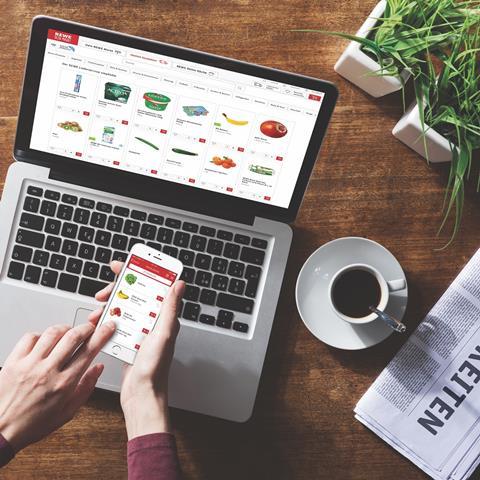Sales of online shopping at the supermarkets have risen by 12 per cent in the last four weeks, reaching highest share since March 2022

Online sales at the multiple retailers have returned to the levels seen during the Covid pandemic, according to the latest Worldpanel by Numerator figures.
Over one in five Brits shopped online for groceries during September, with online sales rising by 12 per cent compared with the same four weeks last year.
This compares to take-home sales at the grocers, which grew by 4.1 per cent over the four weeks to 5 October versus last year.
Online grocery shopping is now worth 12.7 per cent of the market, the highest share since March 2022.
There is also a marked return to shopper interest in sustainability, with microplastics on the rise as a topic of concern and 40 per cent of shoppers saying they are worried about the impact on their health.
One in two shoppers say they would accept plainer packaging, while 54 per cent claimed to be willing to bring their own packaging.
New Worldpanel research also showed that 50 per cent of British shoppers believe that environmental issues are a critical threat to humanity, with the potential to shape the way they shop.
“People are worried about environmental issues but the data uncovers a growing sense of pessimism among consumers about their ability to really make a difference,” said head of retail and consumer insight at Worldpanel, Fraser McKevitt.
“There’s an opportunity for brands and retailers who can make it easier to make sustainable choices and people seem to be willing to adapt.”
Value for money is still a big consideration with only nine per cent of people happy to pay more for items that are better for the planet.
It comes as like-for-like grocery price inflation rose to 5.2 per cent in the last four weeks, matching the level recorded in July.
“Spending on offers has hit its highest level since April at 29.4 per cent, as consumers hunt for deals to ease the burden on their wallets,” added McKevitt.
“Promotions often jump in the run up to the festive season so it’s likely the trend will continue as we get closer to December,” he said.
Healthy diets edge closer as HFSS regs come in
In October, new regulations came into force in England restricting multibuy deals on products high in fat, salt or sugar (HFSS).
“Retailers have had this HFSS legislation in their sights for several years and they’ve been adapting, with consumer habits already shifting as a result,” explained McKevitt, with data showing multibuy sales on items like cereal and crisps have already fallen substantially.
The HFSS legislation comes as focus on a new era of healthy and sustainable diets is set to build, following the launch of the new EAT-Lancet report last week.
Ocado remains fastest growing retailer
Online specialist Ocado remains Britain’s fastest growing grocer, with sales rising by 13.6 per cent over the 12 weeks to 5 October versus the same period a year ago. The retailer now holds a two per cent market share, matching its previous record high.
Lidl also saw double digit growth, as sales grew by 10.8 per cent. This takes the discounter’s market share to 8.2 per cent, up by 0.5 percentage points.
Spending at Tesco increased by 6.9 per cent in the period, taking the retailer to a 28.3 per cent share of the market. Sainsbury’s boosted sales by 5.2 per cent and lifted market share to 15.3 per cent.
Aldi maintained its 10.6 per cent portion of the market as spending rose by 4.3 per cent, while Waitrose’s share held stable at 4.4 per cent after increasing sales by 3.7 per cent.
Continuing its recent food growth trend, sales of groceries at M&S were 7.7 per cent higher over the 12 weeks.



